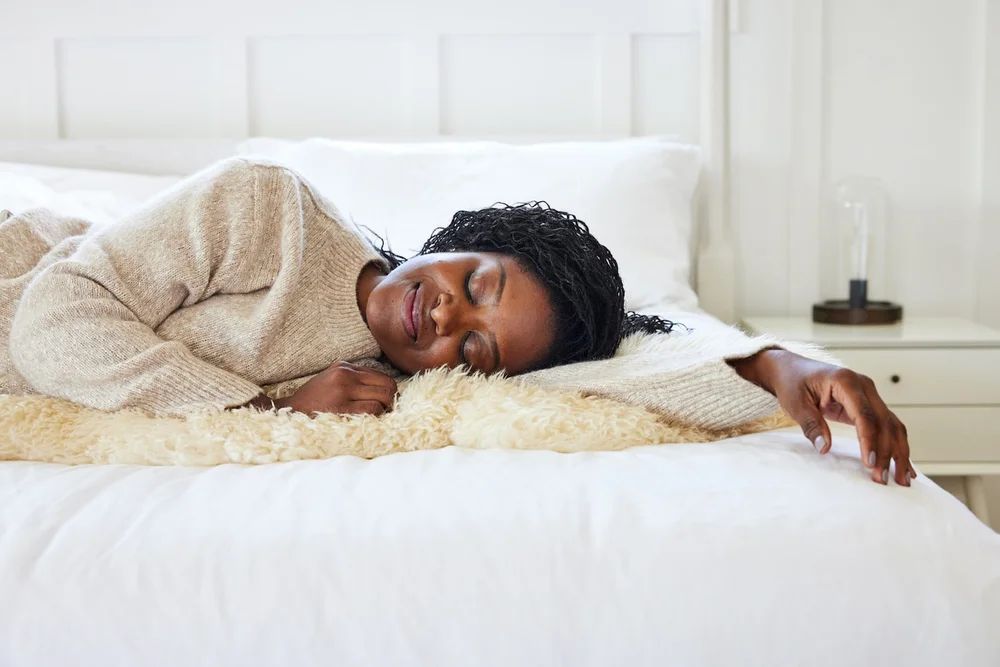Are Naps Good for You? Here’s the Best Tips for Napping as an Adult
Would you like to take more naps, but aren’t sure if you should? Or do you like to squeeze in a daytime nap regularly, or on occasion when the opportunity presents itself?
If so, you might be wondering if they’re good for you or if you should make some changes to your napping habits.
We can probably all agree that quality sleep is important for good health. During sleep your body rejuvenates and repairs itself. Adequate sleep is linked to a healthy immune system and sleep is essential for a healthy body and brain.
On the flip side, when your body doesn’t get enough rest, you’re more susceptible to illness, mood swings, and increased stress levels. Lack of sleep can also lead to lower productivity, energy, creativity, and problem-solving abilities.
Is It Okay to Take a Daytime Nap?
The short answer is yes. This is good news for all the nappers out there!
One of the biggest benefits that research has found is that napping can improve cognitive function. However, pay attention to the length of your nap. Limit your nap to 30 minutes or less if you want to feel the immediate positive effects that a nap can provide.
Power naps are called just that for a reason. Research has shown that short naps can give you an immediate powerful boost in alertness and cognitive function. If you’re feeling midday fatigue, finding a place to take a quick snooze might be just the thing you need.
It’s recommended that adults aim for 7-9 hours of sleep per night. But let’s face it, sometimes you aren’t going to be able to get adequate sleep. Life happens and getting enough sleep isn’t always straightforward, whether it’s due to sleep disturbances, or just not enough time in the day.
Taking a nap can help when you aren’t able to get enough quality sleep at night.
One study found a link between regular nappers and larger total brain volume. As you age, your brain volume tends to decrease. Taking naps may slow the decline, leading to greater overall brain health.
Health Benefits of Naps:
- Increased alertness
- Reduced sleepiness
- Increased productivity
- Improved mood
- Better relaxation
- Physical rejuvenation
- Enhanced cognitive performance
- Improved memory
There are just a few guidelines you should stick to when trying to make the most of your nap.
4 Helpful Tips for Napping As an Adult

1. Shorter is Usually Better
The length of your naps is one of the most important considerations when determining if the nap is good for you or not. Research has shown that naps under 30 minutes are best. A nap of 10-20 minutes is an ideal length to aim for as an adult.
When you take a long nap, you’ll enter the deeper sleep stages, which can lead to grogginess upon waking. This probably isn’t what you’re hoping for when you start your nap. Naps longer than 30 minutes have been linked to adverse health conditions, along with potentially messing up your natural nighttime sleep rhythms.
However, if you need a longer nap to catch up on lost sleep, try to get about 90 minutes. These longer naps can be restorative and will allow you to complete a full sleep cycle. It may take longer to recover from these naps, and they may disrupt nighttime sleep.
2. Set an Alarm
Setting an alarm is the best way to make sure you get the length of nap that you’re intending. It’s so simple! Yet many of us have thought, “I’m just going to rest my eyes for a minute” only to fall asleep and find that we’ve slept much longer than we wanted to.
Set your alarm, even if you’re just resting your eyes, and you won’t regret it.
3. Choose the Right Time of Day
The best time of day to nap is in the early afternoon. Your body’s natural circadian rhythm dips around this time, making it easier to rest and experience a restorative nap.
If you wait too long to take your nap and it’s closer to evening, you may find it harder to fall asleep at your usual bedtime. The ideal nap time is between 12:30 pm and 3:00 pm.
You don’t want to sabotage your nighttime sleep with a late nap. Taking a late nap is like eating a snack too close to dinner and spoiling your appetite. For this reason, aim for a nap before 3:00 pm.
4. Don’t Nap in Complete Darkness
When you’re taking a nap, it’s best if you can let a little light in. Turning out the lights is okay, but try to avoid napping in total darkness.
If you can leave a window open to let in the natural daylight, this is best. Letting in light will help signal to your brain that it isn’t yet time for your nighttime sleep and help you to avoid falling into a deeper sleep.
What If I Can’t Nap?
If you find it hard to take a nap, that’s okay! Naps might just not be for you. Some people struggle with the ability to fall asleep for a nap. If you experience poor sleep quality at night, napping might worsen your sleep challenges.
Napping can give you a needed boost, but it isn’t the only option. If you find yourself in need of a midday pick-me-up, below are a few other ways to naturally increase your energy.
Other ways to get a daytime energy boost:
- Exercise
- Take a walk
- Meditate
- Get some natural light
- Eat a healthy snack
- Engage in social interactions
The Conclusion About Naps As an Adult
A short nap has many potential benefits including increased energy, alertness, mood, and physical and mental performance.
People who nap regularly seem to benefit more from naps than the occasional napper. If you aren’t sure if naps are right for you, find a quiet place in the early afternoon, set an alarm, turn down the lights, and take a quick snooze. You might just wake up feeling refreshed and ready to take on the rest of the day with renewed vigor.
Next time you get the chance for a daytime nap, go ahead and take one – guilt free.
At BrainMD, we’re dedicated to providing the highest purity nutrients to improve your physical health and overall well-being. For more information about our full list of brain healthy supplements, please visit us at BrainMD.



